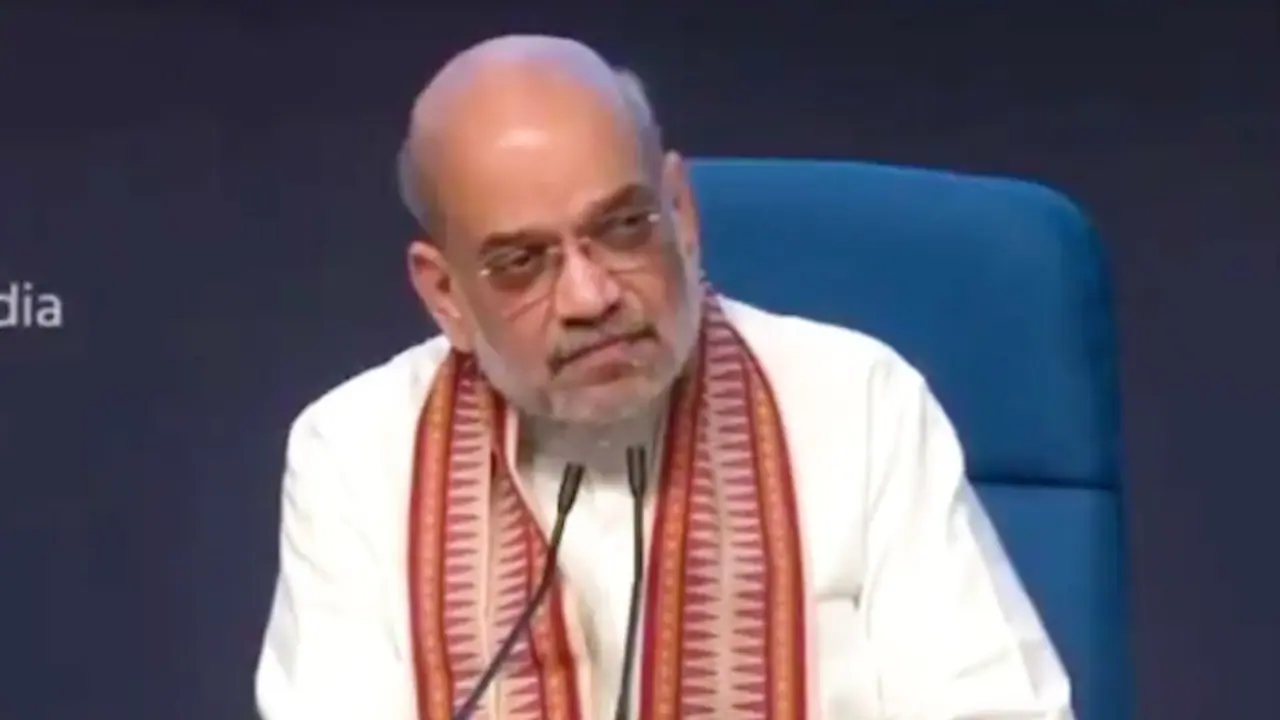Canada’s deputy foreign minister David Morrison on Tuesday admitted that he had told The Washington Post that Union Home Minister Amit Shah had allegedly authorised a wave of violence against Khalistanis on Canadian soil.
In a revelation that can further escalate the India-Canada diplomatic tensions, Canadian foreign minister David Morrison on Tuesday admitted to leaking information to the The Washington Post regarding allegations of the Indian Home Minister Amit Shah's involvement in a wave of violence against Khalistanis on Canadian soil.

David Morrison joined other senior officials in testifying before members of Parliament on the public safety and national security committee. Committee MPs questioned the officials regarding the Royal Canadian Mounted Police's recent allegation that agents of the Indian government were involved in extensive criminal activities across Canada.
Earlier, the publication had reported that Canadian security agencies had gathered evidence indicating “a senior official in India” had “authorised intelligence-gathering missions and attacks on Sikh separatists” in Canada. According to the report, a Canadian source identified Amit Shah as the Indian official involved.
“The journalist called me and asked me if it was that person. I confirmed it was that person,” David Morrison said, without providing further details or evidence.
Trudeau's NSA admits she leaked 'intel on India'
During testimony before the Commons public safety committee, Canadian PM's national security adviser (NSA) Nathalie Drouin stated she did not require Justin Trudeau’s authorisation to release the information.
She also clarified that no classified intelligence was shared with The Washington Post, which published the report a day before Canada announced the expulsion of six Indian diplomats over Thanksgiving, prompting India to recall them.
"We made a strategic decision to engage a respected international news outlet that had already published on the subject to ensure the record was straight and that our side of the story would be widely heard," Drouin told the panel.
The official explained that the decision was aimed at strengthening Canada’s case internationally with its allies.
She also denied allegations of sharing classified information with The Washington Post, stating that the report "contained the same information that was provided to opposition party leaders here."
Drouin's involvement in the alleged information leak surfaced following a report by The Globe and Mail last week, which claimed that she, along with Morrison, shared sensitive details with The Washington Post. The report stated that the pair requested the Post to "hold off on publishing the piece until after the police had spoken."
According to The Globe and Mail, leaked information not only implicated Amit Shah but also linked India to the killing of Sikh activist Sukhdool Singh Gill, who was fatally shot in Winnipeg on September 20, 2023. This incident occurred just two days after Prime Minister Trudeau made a statement in the House of Commons, alleging Indian involvement in the June 2023 murder of Khalistani terrorist Hardeep Singh Nijjar in Surrey, B.C. While no charges have been filed in Gill's case, RCMP Commissioner Mike Duheme commented on October 14 that evidence points to India’s involvement in multiple killings, although only Nijjar’s name was specifically mentioned.
Drouin's admission met with criticism
Drouin’s admission of the leak drew criticism from opposition members. Conservative MP Raquel Dancho expressed concern that information not disclosed to Trudeau had been shared with a US newspaper.
"I just find that kind of unfair to the Canadian public that details were released in advance to the Washington Post and confirmed to the Washington Post, but not provided to to Canada," she said at the hearing. "Don’t you find that odd?"
Drouin also informed MPs that the government had attempted to address the issue with Indian officials, "who cancelled several meetings abruptly" before a session in Singapore, where the Royal Canadian Mounted Police presented evidence “linking India to the violent criminal activities taking place in Canada.” However, she said Indian officials dismissed the evidence.
She added that reports began appearing immediately in Indian media, prompting the Canadian government to go public.
India-Canada ties at all-time low
Relations between Canada and India have reached an all-time low, primarily over Canada’s perceived support for Khalistani extremists within its Sikh-Canadian population, which numbers around 8 lakh. New Delhi accuses Ottawa of failing to curb the activities of Khalistani supporters who, it argues, aim to destabilize India’s sovereignty and territorial integrity.
A year earlier, India expelled 41 Canadian diplomats following Prime Minister Justin Trudeau’s statement alleging “credible” evidence that Narendra Modi’s government was involved in the killing of Hardeep Singh Nijjar on Canadian soil. India has called Canada’s allegations “preposterous,” while the US recently charged an Indian national and a government employee with an attempted assassination of pro-Khalistani figure Gurpatwant Singh Pannun in the US.
India has launched an internal investigation into the allegations. Meanwhile, the US charged former Indian intelligence officer Vikash Yadav with orchestrating a failed plot to kill Gurpatwant Singh Pannun, a dual US-Canadian citizen, in New York City, with the FBI warning against such retaliatory actions.
Last week, External Affairs Minister S. Jaishankar, speaking at an event in Pune on “Emerging Opportunities in the Present Global Scenario,” stated that India initially raised concerns over organized crime in Canada, which were ignored due to a long-standing permissive atmosphere. He added that India would continue to take a firm stance when issues of national interest, integrity, and sovereignty are involved, rejecting accusations against its high commissioner and diplomats by the Trudeau government.
“We completely reject the manner in which the Canadian government targeted our High Commissioner and diplomats,” Jaishankar said in response to a question.
